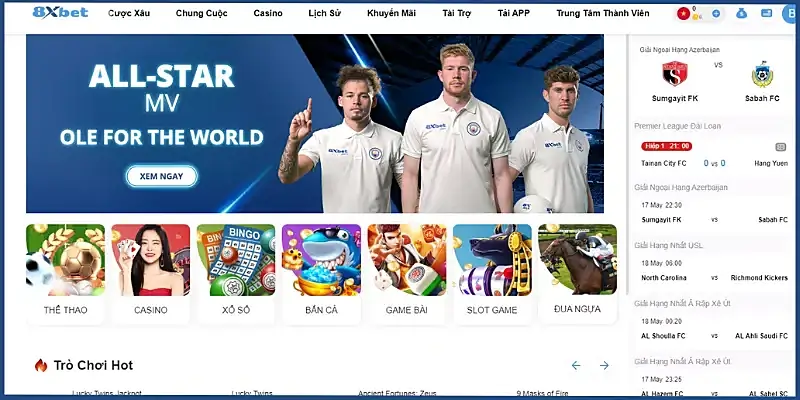
In the evolving landscape of sports marketing, the recent emergence of sports game 8xbet has sparked significant debate within Australia’s sporting community. This controversial development highlights the complex intersection of digital advertising technology, sports entertainment, and gambling regulations, particularly as the Australian Professional Leagues (APL) embraces innovative virtual advertising methods to promote the betting platform internationally while navigating domestic restrictions.
The Digital Transformation of Sports Advertising
The integration of virtual advertising technology in sports broadcasts represents a revolutionary shift in how sponsors reach global audiences. The Australian Professional Leagues’ implementation of digitally imposed advertisements for sports game 8xbet8.info demonstrates the sophisticated capabilities of modern broadcasting technology. This development has fundamentally altered the traditional advertising landscape within sports entertainment.
Virtual Advertising Technology Evolution
The emergence of virtual advertising technology has transformed how sports organizations monetize their broadcast rights. This innovative approach allows for the seamless integration of digital overlays that appear natural to viewers while watching matches. The technology behind these implementations has evolved significantly, enabling real-time adjustments and region-specific content delivery that maintains the visual integrity of the broadcast.
The sophistication of these systems allows for multiple advertising placements simultaneously, as evidenced by the appearance of sports game 8xbet logos in ten different locations during A-League matches. This capability has created new revenue streams for sports organizations while offering advertisers unprecedented flexibility in targeting specific markets.
Regional Content Adaptation Strategies
The APL’s approach to implementing virtual advertising demonstrates the complex nature of regional content adaptation. By restricting the visibility of sports game 8xbet advertisements to specific international markets while excluding others (Australia, New Zealand, the US, and the UK), the league showcases how modern broadcasting technology can facilitate compliance with varying regulatory frameworks across different jurisdictions.
This strategic approach to content delivery represents a significant advancement in sports marketing, allowing organizations to maximize advertising revenue while maintaining regulatory compliance in different regions. The ability to tailor content based on geographical locations has opened new possibilities for international sponsorship deals.
Impact on Traditional Broadcasting Models
The introduction of virtual advertising has fundamentally changed the relationship between sports organizations, broadcasters, and sponsors. Traditional static advertising methods are being supplemented or replaced by dynamic digital solutions that offer greater flexibility and value for all stakeholders involved.
These technological advancements have created new opportunities for revenue generation while simultaneously raising questions about the future of sports broadcasting and advertising integration. The case of sports game 8xbet demonstrates how these tools can be used to navigate complex regulatory environments while maintaining commercial viability.
Regulatory Challenges and Compliance Issues
The implementation of virtual advertising for sports game 8xbet has highlighted the complex regulatory landscape surrounding gambling advertisements in sports. This situation presents a unique case study in how organizations navigate varying international regulations while attempting to maximize commercial opportunities.
Australian Gambling Legislation Framework
The Interactive Gambling Act of Australia establishes strict guidelines regarding offshore gambling operations and their promotion within the country. The legislation’s primary focus is protecting Australian consumers while maintaining the integrity of the domestic gambling industry.
The regulatory framework creates a challenging environment for international operators like sports game 8xbet, who must carefully navigate these restrictions while seeking to establish their presence in the global market. The company’s previous withdrawal from the Australian market following ACMA’s findings demonstrates the effectiveness of these regulatory measures.
International Compliance Strategies
Organizations operating across multiple jurisdictions must develop sophisticated compliance strategies to meet varying regulatory requirements. The APL’s approach to implementing sports game 8xbet advertising demonstrates one such strategy, using technology to ensure compliance while maximizing commercial opportunities in permissible markets.
This balancing act between commercial interests and regulatory compliance has become increasingly important as sports organizations seek to expand their global reach while maintaining their social license to operate within their home markets.

Ethical Considerations and Social Responsibility
The implementation of virtual gambling advertisements raises significant ethical questions about the responsibility of sports organizations to their communities and stakeholders. The controversy surrounding the sports game 8xbet advertising campaign highlights the tension between commercial interests and social responsibility.
The stance taken by clubs like Western Sydney Wanderers and Melbourne Victory in refusing direct gambling sponsorships while being indirectly associated with such advertising through league-wide deals demonstrates the complex nature of these ethical considerations. These clubs face pressure to support their leagues financially while also recognizing the potential negative impacts of promoting gambling within their communities.
Public Perception and Fan Reactions
The public’s perception regarding gambling advertisements in sports, particularly through platforms like 8xbet, plays a critical role in shaping the future direction of digital advertising in this sector. Fans and stakeholders are increasingly vocal about the implications of commercial interests colliding with the integrity and values of sports.
Growing Concerns Over Gambling Addiction
As gambling becomes more accessible through digital platforms, concerns regarding gambling addiction are heightened. Many fans express unease at the omnipresence of betting advertisements during live broadcasts, viewing these promotions as normalizing behaviors that may lead to addiction. The negative experiences shared by individuals who struggle with gambling underscore the need for sports organizations to respect ethical boundaries and prioritize fan welfare above profit.
The Call for Transparency and Accountability
In light of these concerns, there is a growing call for transparency around how sports organizations engage with gambling sponsors. Stakeholders—including fans, advocacy groups, and regulatory bodies—are urging teams and leagues to adopt clear policies that address not only compliance with legal frameworks but also the social implications of their partnerships.
The Role of Fan Engagement Initiatives
To counteract potential backlash, some sports organizations have initiated programs that promote responsible gambling among fans. These initiatives emphasize education and awareness efforts surrounding gambling addiction, promoting resources for those seeking help. By aligning their marketing strategies with responsible practices, organizations can foster goodwill and maintain strong connections with their fan base.
Conclusion
The Digital Advertising Revolution in sports, highlighted by the case of 8XBet, underscores a crucial evolution in how sports organizations navigate the complexities of modern advertising landscapes. The intersection of technology, regulation, and ethical considerations presents both challenges and opportunities for sports marketing today.
Organizations must recognize the need for a balanced approach that embraces innovation while prioritizing community welfare and regulatory requirements. As the sports industry continues to evolve alongside digital trends, stakeholder engagement, transparent communications, and robust compliance strategies will be vital to ensure that the relationship between sports and gambling remains sustainable and socially responsible.
In conclusion, the dialogue surrounding the controversial implementation of virtual gambling advertising serves as a reflection of broader societal issues concerning sports, advertising, and ethics. As we move forward in this digital age, fostering a culture of responsibility will be paramount in preserving the integrity and enjoyment of sports for generations to come.